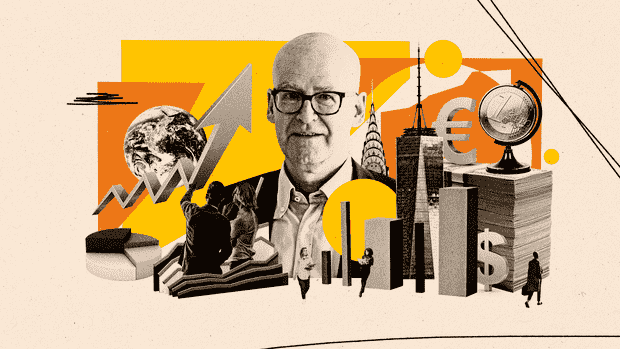Handelsblatt author Thomas Hanke analyzes interesting data and trends from all over the world in the column.
(Photo: Klawe Rzeczy)
The Russian war in Ukraine is hitting Europe’s businesses and consumers with higher energy prices. But the burden is very different.
According to a study by the International Monetary Fund (IMF), higher energy prices will cost Estonians 15 percent and the Czechs, British and Dutch almost 10 percent of their total household spending – additionally. The Germans would get away with less than five percent.
“Half of the rise in crude oil and coal prices is expected to continue through 2026, while about a quarter of the rise in natural gas prices is expected to continue through 2026,” the IMF expects. A quarter still means more than doubling compared to 2021.
The EU must lower prices in a coordinated manner over the long term. Instead, their states are repeating a mistake from the initial phase of the Covid pandemic: they buy separately and compete with each other.
Top jobs of the day
Find the best jobs now and
be notified by email.
The price at the virtual Dutch trading point TTF is decisive for Europe’s gas imports. This usually corresponds to that at the Henry Hub, the gas hub in Louisiana, USA. Currently, the price in the Netherlands is almost ten times higher.
A price cap would be an important first step
Norway, which has risen to become the most important supplier to Europeans, depends on the spot price in the Netherlands: lucrative for the state company Equinor, ruinous for Europe’s economy and consumers. Initial attempts by the EU to negotiate a price cap were rudely rejected in mid-September. The Norwegians are now a little more open.
>> Read here: The state wants to help companies in the fight against high electricity and gas prices
Achieving a price cap for gas is the most important starting point for limiting the additional burden. It would also have to refer to American liquefied petroleum gas, which has become much more important.
One does not want to openly argue about this among the Allies. However, the US government is definitely interested in curbing prices: the high revenue opportunities in Europe allow gas to flow across the Atlantic and drive up prices in the USA.
Not all businesses and households are directly affected by higher gas prices. But all of them are affected by the sharp rise in electricity costs.
Subsidizing the most expensive gas-fired power plants could push gas prices down.
(Photo: dpa)
On Europe’s electricity market, the costs of the last power plant connected to cover demand determine the price for everyone. These are gas-fired power plants whose extremely high generation costs drive up the price of electricity and bring hefty additional profits to the operators of wind, coal and nuclear power plants.
Subsidies for the most expensive gas power plants
That could be changed without turning the market organization upside down. The merger of the EU regulators ACER describes the possibility of subsidizing the most expensive gas-fired power plants. If their costs fall, the electricity price falls overall because they act as marginal suppliers and set prices.
This step would still be complicated enough. Because the electricity market is integrated, the member states would have to coordinate. Otherwise cheaper electricity will also flow to countries that are not contributing to cost reductions.
But it would be much easier than letting the prices gallop first and afterwards determining the subsidy needs of every commercial electricity customer who is becoming illiquid, relieving private households as required and finally calculating and taxing the excess profits of cheap electricity producers.
>> Read here: More countries are turning their backs on Russia – “Not even North Korea wants to be seen with the guy?”
The realization of the gas pipeline from the Iberian peninsula to the north would also increase supply and lower prices. Spain has the largest liquid gas terminals in the EU, and together with Portugal it will produce green hydrogen in the future.
France is blocking this project: “It’s wrong, it’s factually wrong,” said President Emmanuel Macron a few days ago. He wants to sell his own hydrogen from nuclear power. Berlin should remind him that such zero-sum games are not timely.
More: Why the US would benefit from a prolonged war in Ukraine
